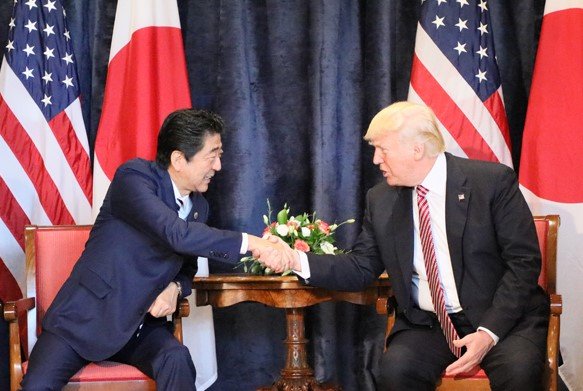The warning came with a blunt message—Trump says Iran missed its chance to sign the nuclear deal. Now, global leaders scramble as tensions reach a boiling point.
It wasn’t just another post on Truth Social. It was a message that rattled global capitals. As the G7 summit played out in Canada, U.S. President Donald Trump issued a public warning urging Iranians to “immediately evacuate Tehran.” The statement landed like a thunderclap, just as Israeli airstrikes and Iranian missile launches pushed the Middle East closer to a breaking point.
Trump’s post came alongside his sudden decision to exit the G7 one day early, a move that French President Emmanuel Macron later called “a positive sign” toward restoring calm. But few are reading it that way in Tehran—or Tel Aviv.
‘Iran Can’t Have a Nuke’: Trump Doubles Down
Trump’s rhetoric wasn’t subtle. In the now-viral Truth Social post, he blasted Iran’s leadership for failing to ink a nuclear deal when they had the chance.
“Iran should have signed the ‘deal’ I told them to sign. What a shame, and waste of human life,” Trump wrote.
He added bluntly: “IRAN CAN NOT HAVE A NUCLEAR WEAPON. I said it over and over again!”
According to senior White House officials, Trump has grown increasingly frustrated with what he sees as Iran’s “gamesmanship” around uranium enrichment. Speaking to Reuters earlier this week, Trump said Washington gave Iran a 60-day window to agree to curb its nuclear ambitions. That window, he said, has now closed.
The tone wasn’t just defiant—it was foreboding.

Missiles Over Mountains, Sirens in Cities
For five consecutive days, Iran and Israel have traded fire. No longer just proxy battles. These are direct hits.
Tehran was jolted Monday night by sirens and sonic booms as Israeli jets reportedly targeted strategic military installations. Meanwhile, Iranian forces retaliated with long-range missile barrages, some intercepted, others not.
In cities like Esfahan and Mashhad, panic has set in. Schools are shut. Shelters are full. On the Israeli side, Tel Aviv’s iron dome has been working overtime.
People aren’t just watching this unfold—they’re living it.
Just one sentence captures the mood in both countries: Nobody knows what tomorrow brings.
G7 Summit Overshadowed by War
In what was supposed to be a meeting focused on global economic coordination and AI governance, the G7 summit in Quebec rapidly transformed into a war council.
Trump’s departure was unexpected but not entirely surprising. A senior White House aide told reporters off-record: “He didn’t want to waste time in meetings while the Middle East burned.”
French President Macron offered a slightly different interpretation. “The president’s early departure shows urgency, but also opportunity. A ceasefire is our collective priority,” he said Tuesday.
Here’s how the summit lineup shifted after Trump’s exit:
| Country | Leader Present | Position on Israel-Iran Conflict |
|---|---|---|
| United States | Donald Trump (left early) | Firmly backs Israel, demands Iran deal |
| France | Emmanuel Macron | Pushing for ceasefire |
| Germany | Olaf Scholz | Advocating EU-led de-escalation |
| Canada | Justin Trudeau | Urging diplomatic talks |
| UK | Rishi Sunak | Supports Israel but calls for caution |
| Japan | Fumio Kishida | Warns of global oil shock |
| Italy | Giorgia Meloni | Pushes for UN-led intervention |
Ordinary Iranians on Edge
The real cost of all this is being paid in neighborhoods far from boardrooms.
Families in Tehran woke up Tuesday to the sound of civil defense announcements. “Stay away from windows. Prepare emergency kits. Await official instructions.”
That’s what they were told.
One resident, Nima A., 31, said the uncertainty is worse than the attacks. “We don’t know if this is the big one. We don’t know if tomorrow we still have a city.”
• Pharmacies are running low on basic meds
• Fuel lines stretch for hours in southern districts
• Several flights out of Tehran sold out in under an hour
“It’s a ghost city after 9 p.m.,” another resident said. “And this is Tehran. That never happens.”
Washington’s Real Red Line
Trump’s statement wasn’t just aimed at the Iranian public—it was a signal to allies and adversaries alike. The nuclear issue remains his red line.
According to State Department insiders, the U.S. still sees a diplomatic off-ramp, but it’s narrow and closing fast.
One senior official said, “If Iran pushes forward with weaponization, they know what’s coming. And it won’t be more sanctions.”
The fact that Trump made the warning publicly rather than through diplomatic channels has raised eyebrows. Analysts say it’s both a show of force and a deliberate provocation.
But what’s unclear is whether it will trigger submission—or escalation.
Israel’s Calculated Silence
While Trump stirred the pot, Israel stayed quiet.
Israeli Prime Minister Benjamin Netanyahu has not issued any public statements since Monday night’s operations, and officials in Tel Aviv are declining to comment on operational details.
Analysts believe this silence is strategic.
“They’re letting Trump do the talking. And in a way, he’s giving them cover,” said Dahlia Scheindlin, an Israeli political analyst.
But backchannel conversations are ongoing. UN diplomats say backdoor diplomacy is heating up in New York and Vienna.
Still, with rockets flying and leaders posturing, no one’s betting on peace just yet.
